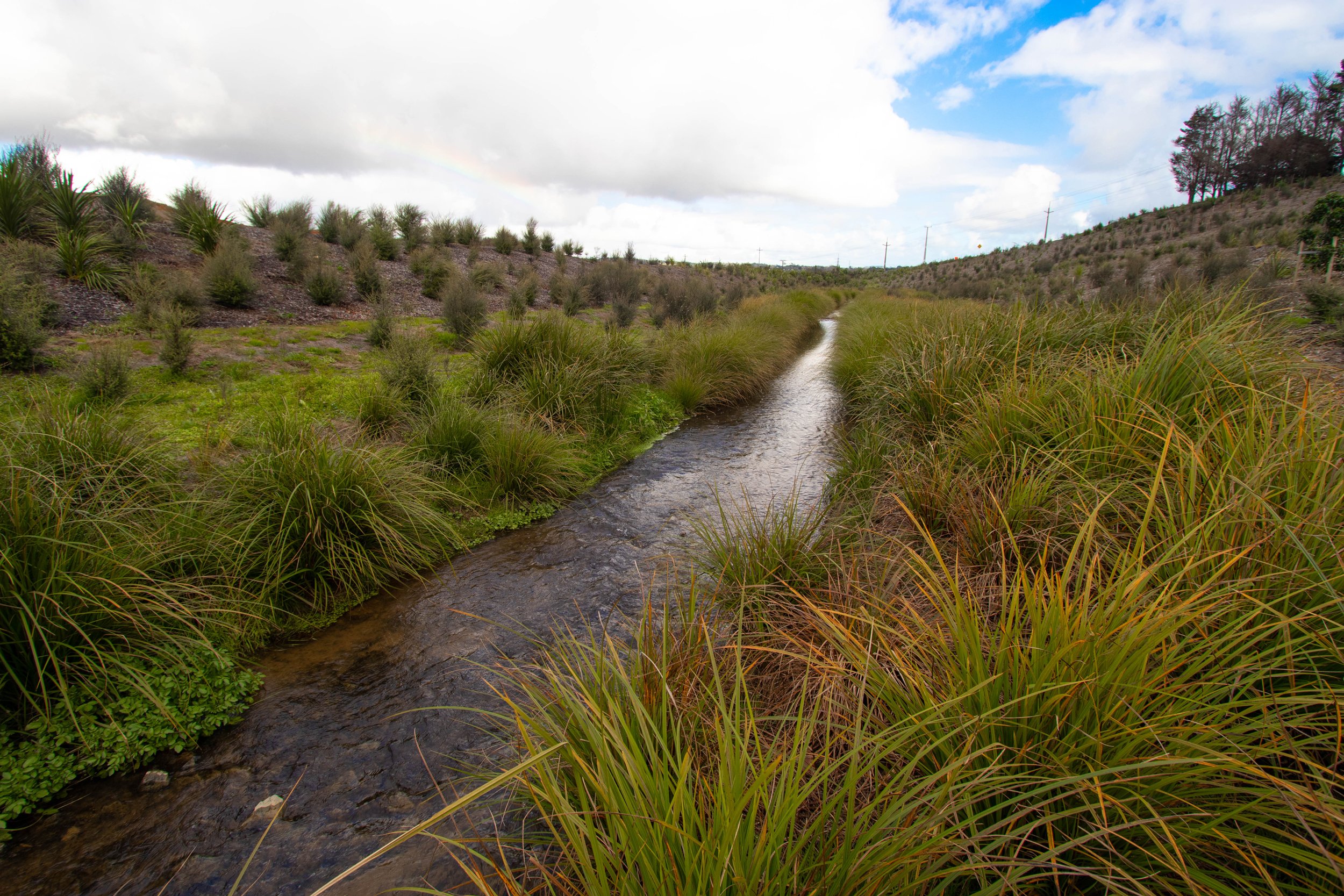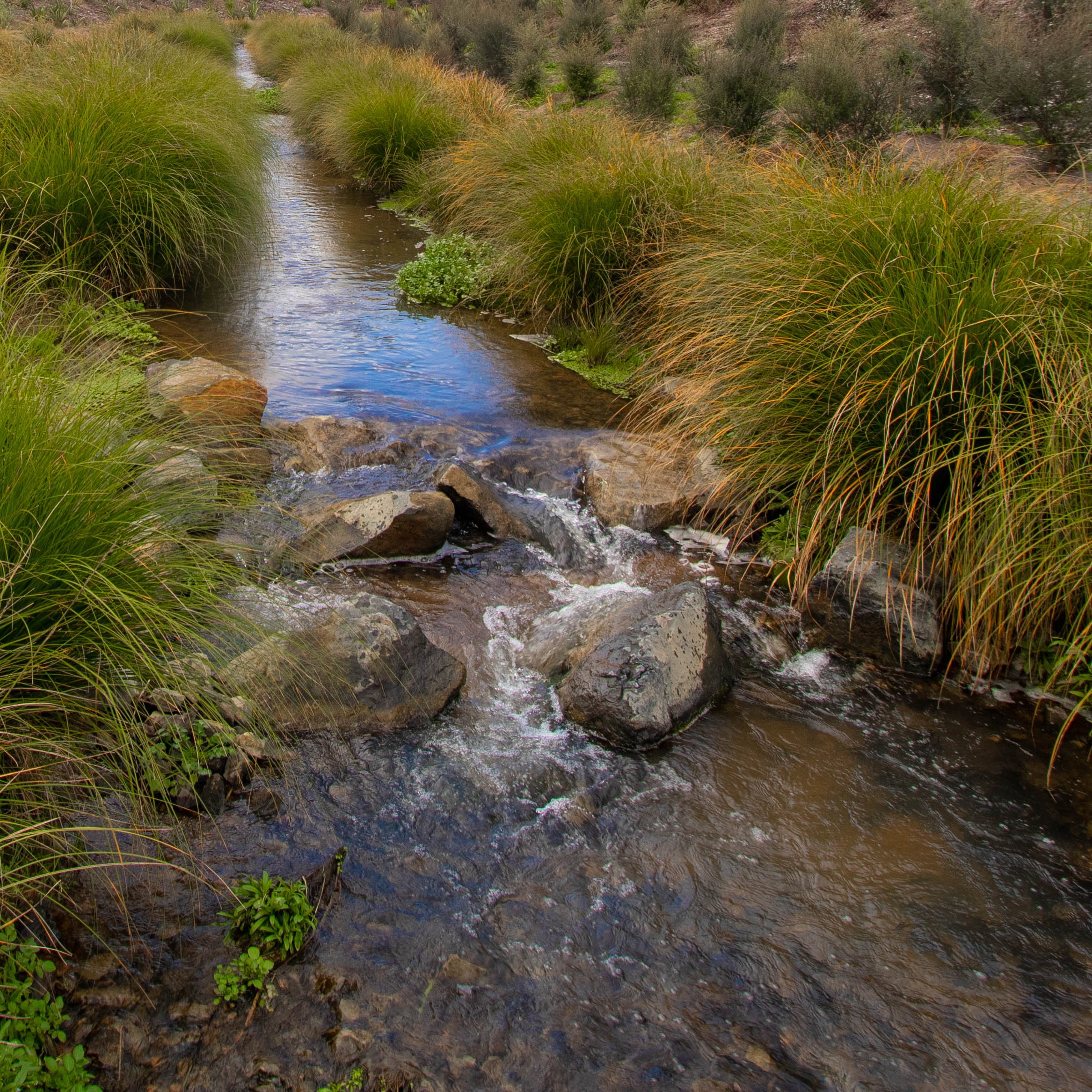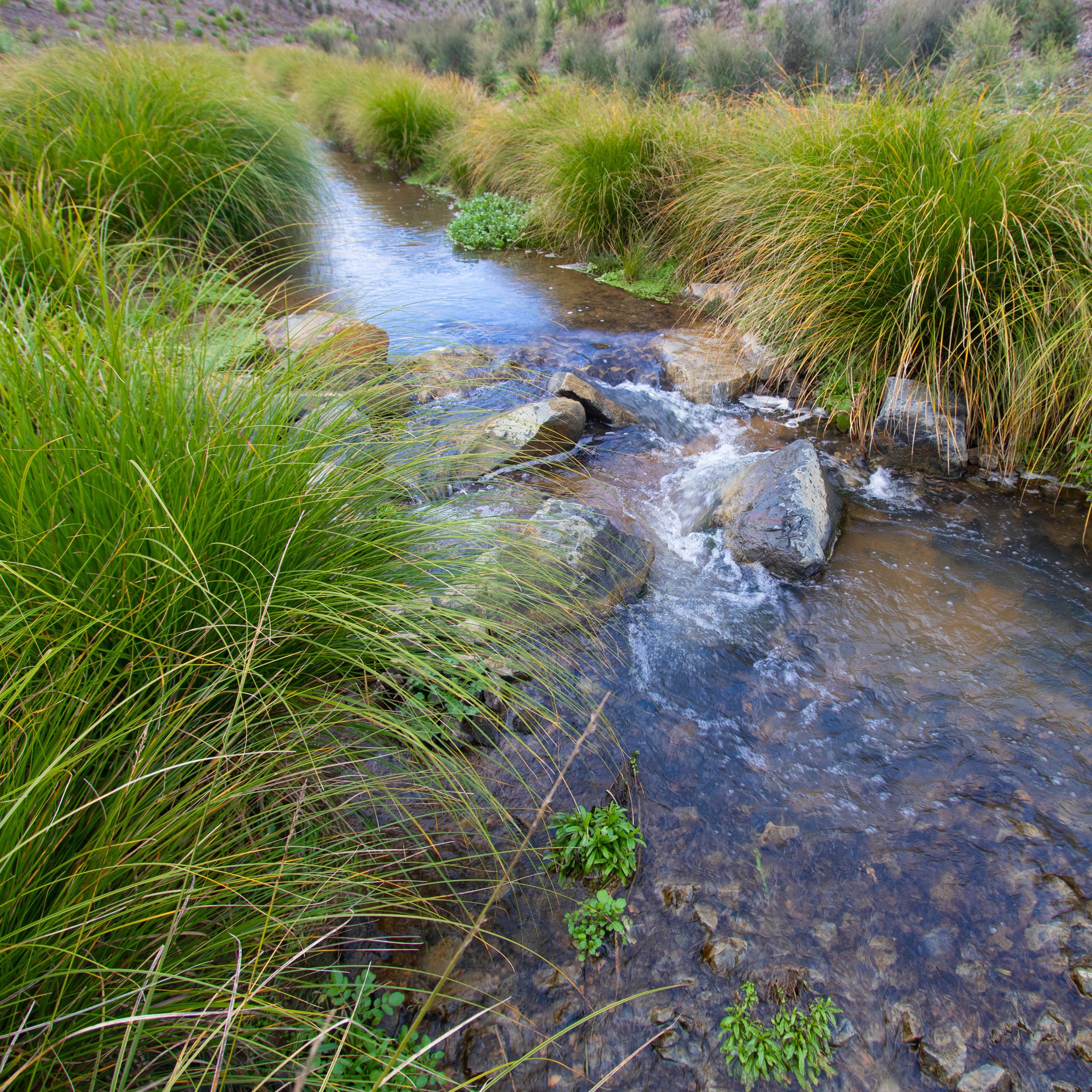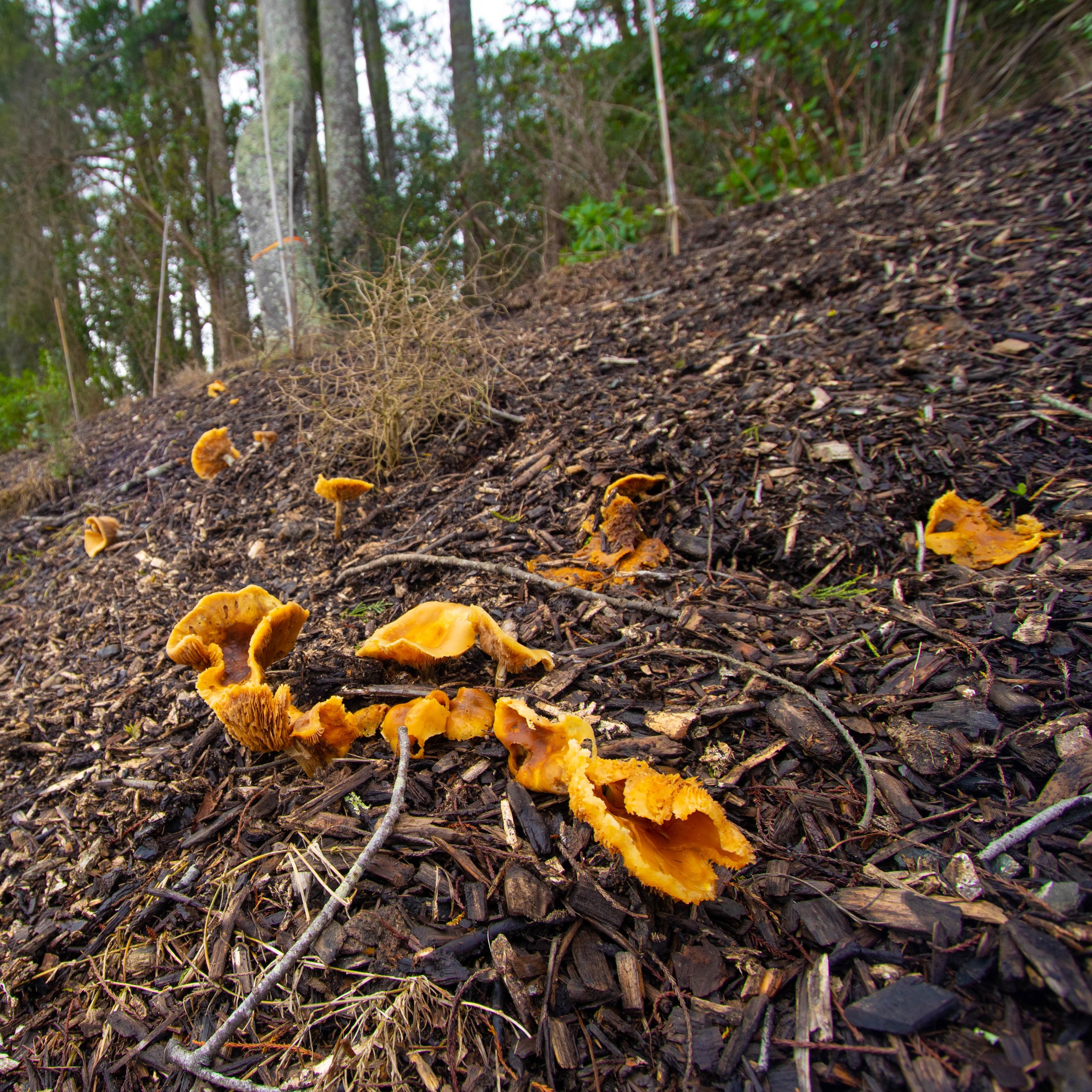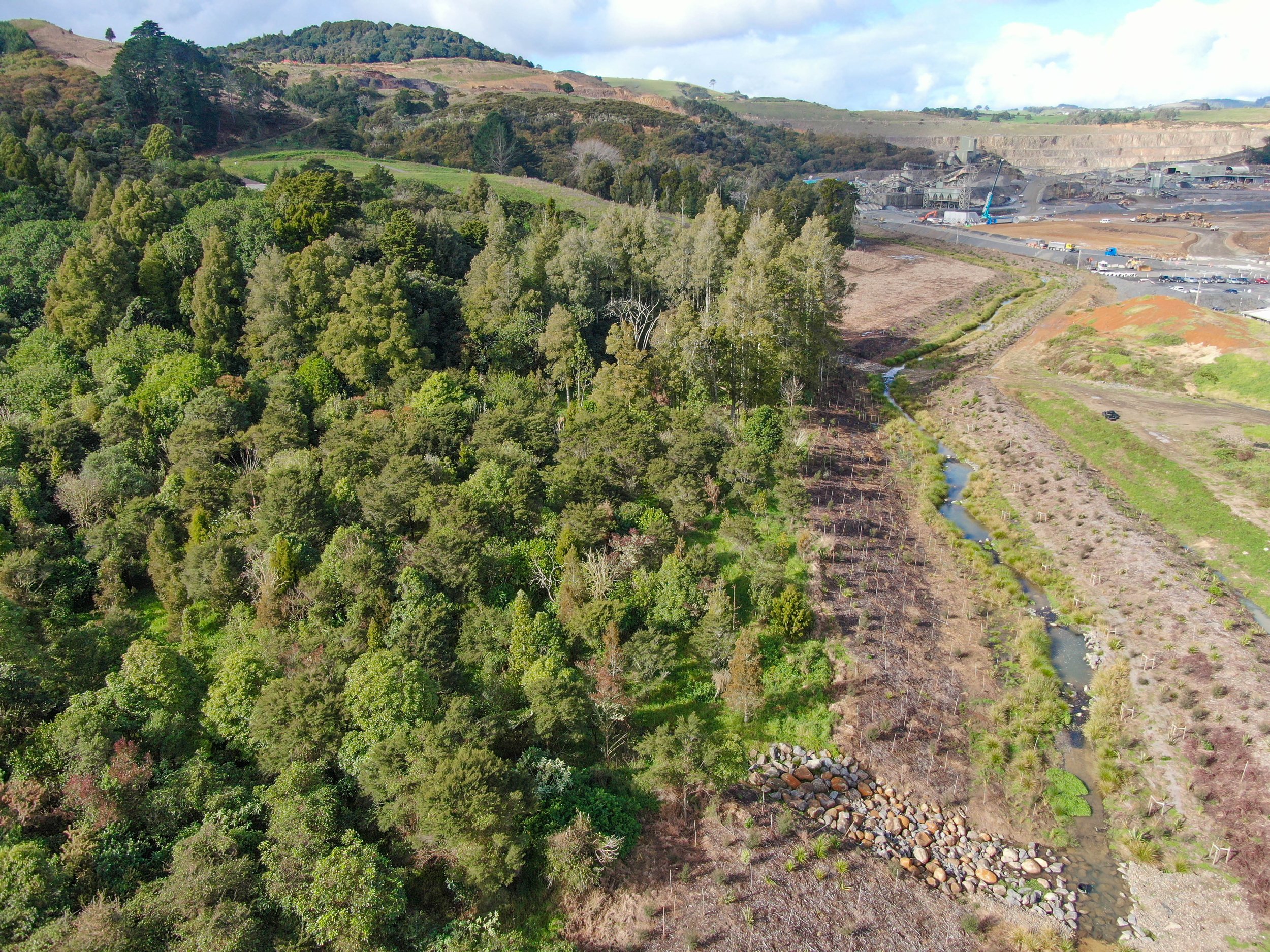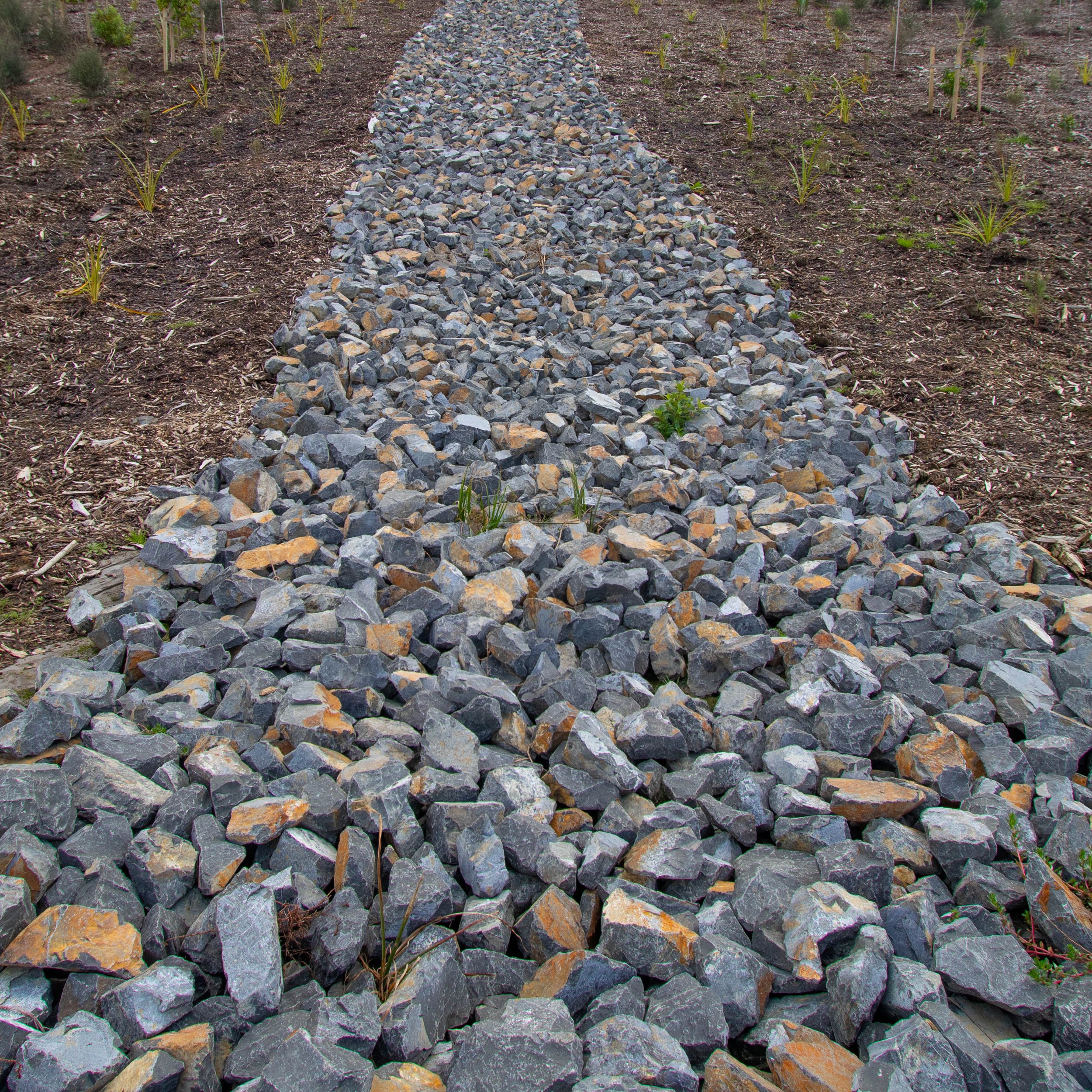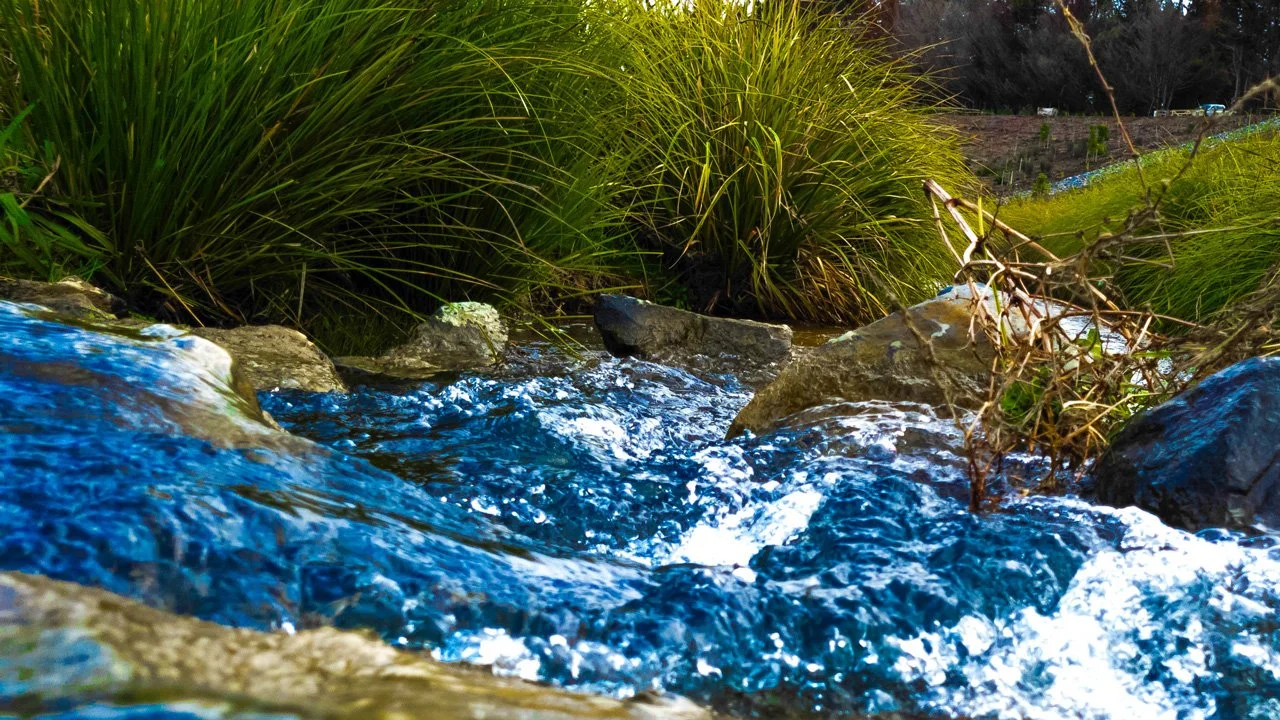Life-giving vitality at the rock face.
Drury South Crossing – 37°12′S 174°98′E
At Kauri Park it’s our vision to see every stream, river, estuary and piece of marginal land in the country planted so that native flora and fauna can thrive and so that New Zealand herself is teeming with life.
It’s an inspiring idea but don’t worry, our days are not spent up in the clouds. We fight for the world by digging in. Literally. That’s why we love to work with clients like us - eco-realists who share our urgency to restore and revitalise our planet.
This project was between a rock, and not a hard place, but a delicate estuary. The task was to create a life-sustaining ecosystem between a quarry site and a vital water source. So, kinda of a hard place and certainly a bit of thinking was involved.
Ecosystem: Nature working with humanity so we can both be at the top of our game.
The Drury South Crossing is designed to connect the Manukau Harbour and the Pahurehure Inlet via the Hingaea Stream. It includes the Hunua Ranges Regional Park which extend to the Firth of Thames. This is an east to west macro-ecosystem that, in its entirety, connects two oceans and contains within it an incredible range of sub-ecosystems: coastal, urban, freshwater riparian, rural, regenerating forest, wetland and native forest. A project with complex, interconnecting ecosystems, designed to regenerate everything around it. Now, that’s a project for Kauri Park. We are so honoured to have been involved. So where did we start?
Well, preparation is always the best way to start. The first part of preparation of the site was the diversion of a stream adjacent to the quarry site and on the edge of the property, so that it could run alongside existing native vegetated corridors. The soil types, moisture content and existing wildlife habitat were ideal for the development of a whole new ecosystem. Next we removed woody weeds and undertook pest control to further prepare the land for revitalisation.
Ecovitalism: Crafting and building a freshwater riparian ecosystem.
Self-sufficiency and resourcefulness are real Kauri Park values. We believe in getting the best out of everything. Productivity matters. We really value our resources, not in a make-do way but in a do-everything-you-can-with-what-you-have way. We tackled the Drury South Crossing with that spirit.
The site’s large woody weeds, the tobacco weed, privet and gorse, were neutralized and mulched back into the soil providing a carbon source and food for microbes and fungi. Extra bark mulching was imported to suppress future weeds and retain moisture. This approach will have a big impact on post project maintenance and allow our plants to get to canopy quicker. The retained moisture will provide habitats for insects, reptiles, and birds all along the new stream.
Our botanists scoured the area and eco-sourced seeds that would deliver the most sustained life-giving transformation to the ecosystem. These seeds were then nurtured and crafted into the right plant grades and sizes ready to be given back to the environment. Our professional planting team are ecovitalists with dirty fingernails, and they worked hard to revegetate and restored this vast and valuable macro-ecosystem. The pest control team are realists, just like nature. They protected the plants through the establishment stages.
Rock rapid systems were installed at regular intervals along the new stream to provide habitat of depth and oxygenation through the rapids. We sourced and selected a large supply of rocks from a neighbouring property. Some of the existing removed logs and branches from old pine trees were set in the stream edges as ecosystem habitats for eels, koura and mudfish.
We nurtured the interconnectedness of this special place. This ecosystem is another example of how we approach restoration work with passion and urgency. The project was given practical completion in two years once the plants reached canopy cover. We’re proud to see the land teeming with life.


